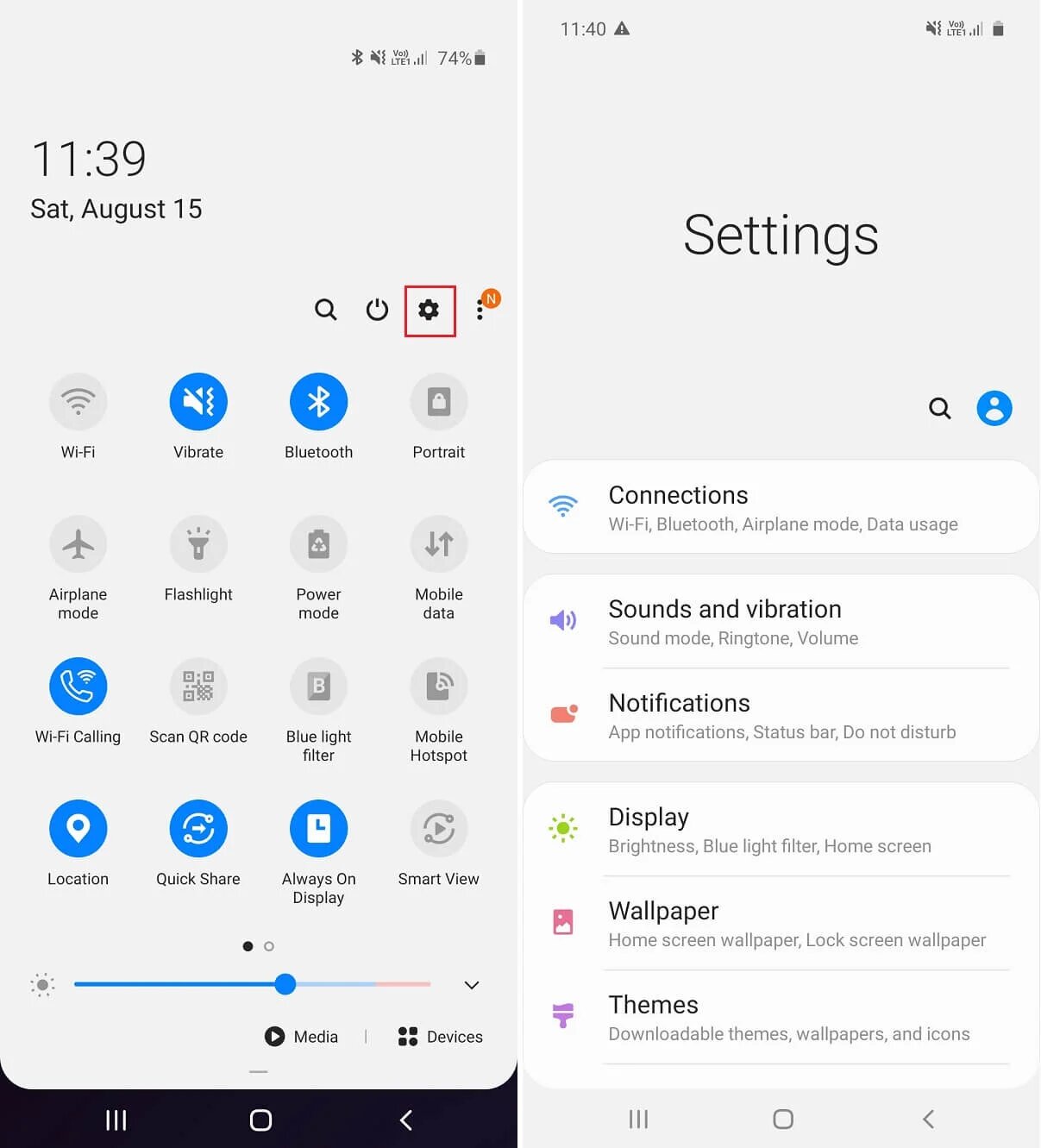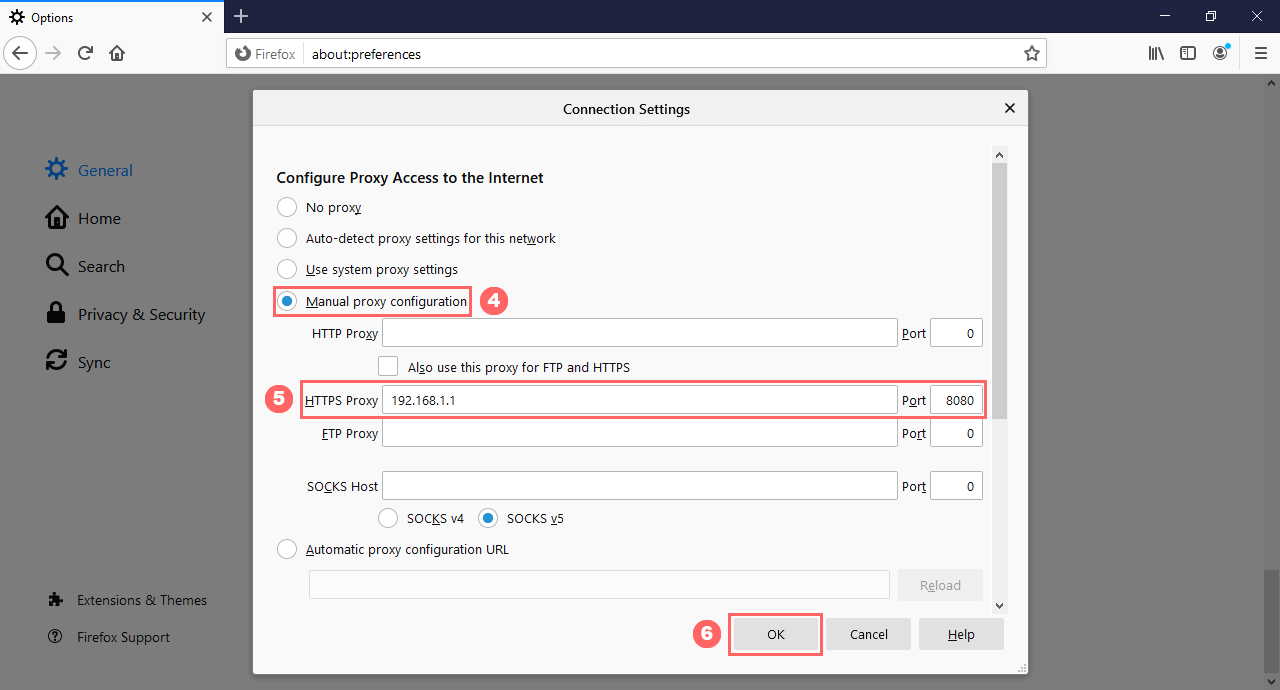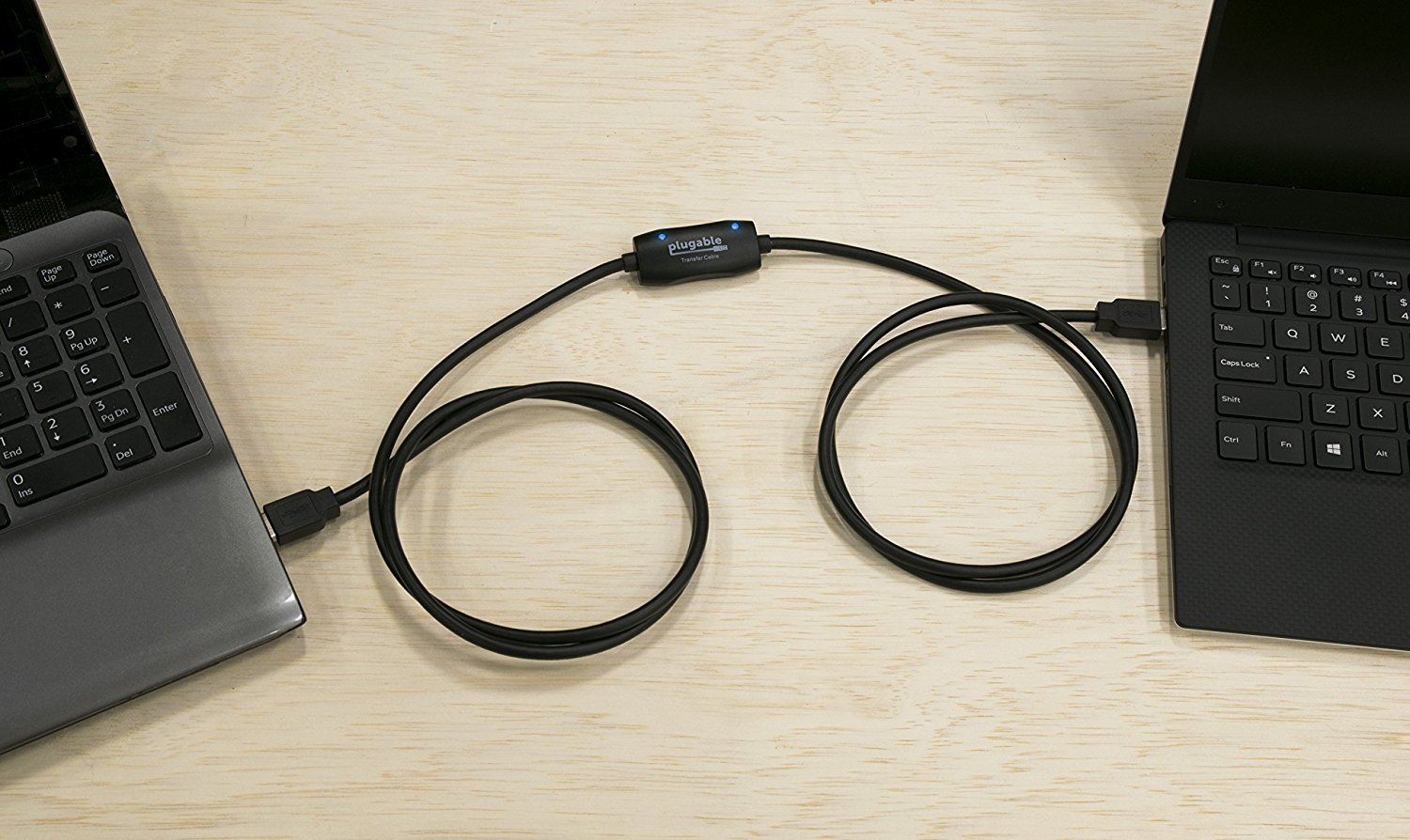Introduction
Welcome to the world of proxy servers! If you’ve ever wondered about the benefits of using a proxy server or which one to choose, you’re in the right place. In this article, we’ll dive into the realm of proxy servers, exploring their functionalities, different types, and factors to consider when selecting the right one for your needs.
In today’s digital age, where privacy and online security are paramount, proxy servers have gained immense popularity. Whether you’re an individual seeking to browse the internet anonymously or a business looking to protect sensitive data, a proxy server can be an invaluable tool.
But what exactly is a proxy server? Essentially, it acts as an intermediary between your device and the websites you visit. Instead of connecting directly to the website, your internet traffic is routed through the proxy server, which then forwards your requests and receives the responses on your behalf.
So why use a proxy server in the first place? Well, there are several compelling reasons. Firstly, it offers enhanced privacy by masking your IP address. When you connect to a website via a proxy server, the website only sees the IP address of the proxy server, keeping your own IP address hidden. This can help protect your online identity and prevent websites from tracking your activities.
Secondly, proxy servers can help bypass geo-restrictions. Certain websites and streaming platforms limit access based on geographical location. By connecting to a proxy server in a different region or country, you can effectively bypass these restrictions and access the content you desire.
Thirdly, proxy servers can improve internet speed and performance. By caching frequently requested web pages and filtering out unnecessary data, proxy servers can optimize website loading times and reduce bandwidth usage. This is particularly beneficial in environments with multiple users accessing the internet simultaneously.
Now that we have a basic understanding of proxy servers and their benefits, let’s explore the different types of proxy servers available. From free options to paid services, and public versus private servers, we’ll discuss the various factors to consider to help you make an informed decision. So, without further ado, let’s dive into the world of proxy server options!
What is a Proxy Server?
A proxy server acts as an intermediary between your device and the internet. When you connect to a website through a proxy server, your web traffic is first routed through the proxy server before reaching its destination. This intermediary server masks your IP address, making it appear as if your requests are coming from the proxy server rather than your own device.
But why would you want to use a proxy server? There are multiple reasons. Firstly, it enhances your privacy and anonymity. By hiding your IP address, a proxy server prevents websites from tracking your online activities and collecting your personal information. This is particularly important when browsing on public Wi-Fi networks, where your data may be at risk.
Secondly, a proxy server enables you to bypass geo-restrictions. Some websites and online services are only available in certain regions. But by connecting to a proxy server located in the desired region, you can access geo-blocked content. This is especially useful for streaming platforms, allowing you to watch region-restricted movies, TV shows, and sports events.
Thirdly, a proxy server can improve internet speed and performance. By caching web pages and resources, proxy servers store data locally and deliver it directly to your device upon request. This reduces the load on the original server and speeds up the browsing experience. Additionally, proxy servers can compress data, resulting in reduced bandwidth usage.
Proxy servers come in varying types, each with its own purpose and functionality. The most common types are:
- HTTP proxies: These proxies handle web traffic and are suitable for tasks like browsing, accessing websites, and streaming media.
- HTTPS proxies: These proxies encrypt web traffic, providing an extra layer of security. They are ideal for handling sensitive online transactions and communication.
- SOCKS proxies: These proxies work at a lower level and can handle various types of traffic, including HTTP, HTTPS, and torrenting.
- Transparent proxies: These proxies do not modify or hide your IP address. They are commonly used by businesses for network management and monitoring purposes.
- Anonymous proxies: These proxies hide your IP address but do not identify themselves as proxies. They provide a higher level of privacy and security compared to transparent proxies.
- Elite proxies: Also known as high-anonymous proxies, these proxies not only hide your IP address but also don’t disclose that you’re using a proxy. They offer the highest level of anonymity.
Now that you have a better understanding of what a proxy server is and its various types, you can make an informed decision when it comes to selecting the right proxy server for your specific needs. In the next section, we’ll explore the factors to consider when choosing a proxy server, helping you make the best choice.
Why Use a Proxy Server?
Proxy servers offer a wide range of benefits, making them a valuable tool for individuals and businesses alike. Here are some compelling reasons to use a proxy server:
1. Enhanced Privacy and Anonymity
One of the primary reasons to use a proxy server is to protect your online privacy. By acting as a middleman between your device and the internet, a proxy server masks your IP address, making it difficult for websites and online services to track your activities and collect your personal information. This can prevent targeted advertising, minimize the risk of identity theft, and maintain your anonymity while browsing the web.
2. Bypass Geo-Restrictions
If you’ve ever encountered the frustrating message “This content is not available in your region,” a proxy server can come to the rescue. By connecting to a proxy server located in a different country or region, you can effectively bypass geo-restrictions imposed by websites and streaming platforms. This gives you access to region-specific content, such as TV shows, movies, sports events, and online services that may be restricted in your location.
3. Improved Network Performance
Proxy servers can also enhance your network performance by caching frequently accessed web pages and resources. When you request a particular webpage, instead of fetching it from the original server, the proxy server delivers the cached version, resulting in faster loading times and reduced bandwidth usage. This is particularly beneficial in environments where multiple users are accessing the internet simultaneously, such as offices or public Wi-Fi networks.
4. Content Filtering and Security
Proxy servers can be configured to filter and block specific types of content, such as malicious websites, inappropriate or unauthorized content, or certain file types. This helps maintain network security and ensures that users adhere to organizational policies. Additionally, some proxy servers offer antivirus and firewall features, providing an additional layer of protection against online threats.
5. Anonymous File Sharing and Torrenting
For those involved in file-sharing or torrenting activities, proxy servers can offer increased anonymity and security. By routing your P2P traffic through a proxy server, you can protect your IP address from being exposed to other users and reduce the risk of legal repercussions or copyright infringement claims.
6. Web Scraping and Data Gathering
Proxy servers are essential tools for web scraping and data gathering. By using multiple proxy servers, you can make requests to websites from different IP addresses, avoiding IP blocking or rate limiting. This allows you to gather data from various sources without drawing attention or incurring restrictions.
These are just a few of the many reasons why using a proxy server can greatly benefit individuals and businesses. Now that you understand the advantages, it’s important to consider certain factors when choosing the right proxy server for your needs. In the next section, we will explore these factors in detail to help you make an informed decision.
Types of Proxy Servers
Proxy servers come in various types, each with its own functionalities and purposes. Understanding these different types can help you choose the right proxy server for your specific needs. Here are the most common types of proxy servers:
1. HTTP Proxy
An HTTP proxy, also known as a web proxy, is designed to handle web traffic. It acts as an intermediary between your device and the websites you visit. When you request a webpage, the HTTP proxy server fetches the content on your behalf and delivers it to you. This type of proxy is suitable for general web browsing, accessing websites, and streaming media.
2. HTTPS Proxy
Similar to an HTTP proxy, an HTTPS proxy is specifically designed to handle secure web traffic. It encrypts the data transmitted between your device and the proxy server, providing an extra layer of security. HTTPS proxies are commonly used for handling sensitive information, such as online transactions, login credentials, and personal data.
3. SOCKS Proxy
A SOCKS (Socket Secure) proxy operates at a lower level and can handle various types of traffic, including HTTP, HTTPS, and even torrenting. Unlike HTTP and HTTPS proxies, which are limited to specific protocols, SOCKS proxies are more versatile and can be used for a wide range of applications.
4. Transparent Proxy
A transparent proxy does not modify or hide your IP address. It is commonly used by businesses for network management and monitoring purposes. Transparent proxies allow organizations to monitor and control the internet usage of their employees, ensuring compliance with company policies and preventing unauthorized access to certain websites or content.
5. Anonymous Proxy
An anonymous proxy server hides your IP address, providing a higher level of privacy and security compared to transparent proxies. When you connect to a website through an anonymous proxy, the website only sees the IP address of the proxy server, keeping your own IP address hidden. This type of proxy is commonly used by individuals seeking to protect their online identity.
6. Elite Proxy
An elite proxy, also known as a high-anonymous proxy, offers the highest level of anonymity. It not only hides your IP address but also doesn’t disclose that you’re using a proxy. Elite proxies are ideal for those who require maximum privacy and security while accessing the internet.
When choosing a proxy server, it’s essential to consider the specific requirements of your use case and select the appropriate type accordingly. Free proxies and paid proxy services offer these different types of proxy servers, each with its own set of features and limitations. In the next section, we will discuss the factors you should consider when choosing a proxy server, whether you opt for a free or paid option.
Factors to Consider When Choosing a Proxy Server
Choosing the right proxy server is crucial to ensure optimal performance and meet your specific requirements. Here are some key factors to consider when selecting a proxy server:
1. Reliability and Speed
The reliability and speed of a proxy server are of utmost importance. A proxy server should have a high uptime rate, minimizing the chances of connection failures or downtime. Additionally, it should provide fast and responsive service to ensure smooth browsing and data transfers. Look for reviews and performance metrics to gauge the reliability and speed of different proxy servers before making a decision.
2. Location Coverage
The location coverage of a proxy server is important, particularly if you require access to region-specific content. Choose a proxy server provider that has servers located in the regions or countries you need. This will allow you to bypass geo-restrictions and access content from various locations around the world.
3. Protocol Support
Different proxy servers support different protocols. Ensure that the proxy server you choose supports the protocols necessary for your intended use. For example, if you require secure browsing, make sure the proxy server supports HTTPS. If you need to handle torrenting or other types of traffic, opt for a SOCKS proxy that can accommodate your requirements.
4. Bandwidth and Usage Limits
Consider the bandwidth and usage limits of the proxy server, especially if you anticipate heavy usage. Some proxy servers impose restrictions on data transfer or have limitations on the number of connections you can make. Ensure that the proxy server offers sufficient bandwidth and usage allowances to support your intended usage level.
5. Security and Privacy
Security and privacy are critical factors when choosing a proxy server. Look for servers that prioritize encryption and offer options for anonymous browsing. Additionally, consider the logging practices of the proxy server provider. Opt for providers that have strict privacy policies and do not store or track your online activities.
6. Customer Support
Having reliable customer support can be vital in case you encounter any issues or require assistance with the proxy server setup. Check if the proxy server provider offers responsive customer support through various channels, such as live chat, email, or phone. A provider with excellent customer support can ensure a smoother and more efficient experience.
7. Cost and Pricing Plans
Consider the cost and pricing plans of the proxy server service. Free proxy servers may have limitations in terms of speed, bandwidth, or server locations. Paid proxy services often offer more extensive features and flexibility in their plans. Assess your needs and budget to determine whether a free or paid option would be more suitable for you.
By taking these factors into account, you can make an informed decision when choosing a proxy server that aligns with your requirements and offers a reliable and secure browsing experience.
Free Proxy Servers
Free proxy servers can be an appealing option for individuals who are looking to access restricted content or protect their online privacy without incurring any cost. However, it’s important to understand the limitations and potential risks associated with using free proxy servers.
Advantages of Free Proxy Servers
One of the main advantages of using free proxy servers is obvious in their name – they are free of charge. This can be an attractive feature for those who want to explore proxy server functionalities without any financial commitment.
Free proxy servers also enable users to bypass geo-restrictions and access content that may be limited to certain regions or countries. This can be particularly useful for individuals who want to watch region-specific streaming services or access region-specific websites.
Limitations and Risks of Free Proxy Servers
While free proxy servers offer certain advantages, they also come with limitations and potential risks that users should consider:
1. Limited Server Locations
Free proxy servers often have limited server locations compared to paid options. This means that your options for bypassing geographical restrictions may be limited, and you may not be able to access the content you desire.
2. Unreliable Performance
Due to the high demand for free proxy servers, their performance may be unreliable. Slow connection speeds, frequent downtime, and limited bandwidth can result in a frustrating browsing experience.
3. Lack of Security and Privacy
Free proxy servers may not prioritize security and privacy. Some providers may log your browsing activity or inject ads into the websites you visit to generate revenue. This compromises your online privacy and may expose you to malware or phishing attempts.
4. Potential for Malicious Servers
Unfortunately, some free proxy servers may be operated by malicious individuals or organizations. These servers can intercept your data, steal your personal information, or inject malware onto your device. It’s crucial to be cautious when using free proxy servers and choose reputable providers.
Tips for Using Free Proxy Servers Safely
If you still decide to use free proxy servers, here are some tips to ensure a safer browsing experience:
1. Research and Choose Reputable Providers
Take the time to research and choose reputable providers. Look for reviews and user feedback to gauge the trustworthiness of a free proxy server. Stick to providers that have positive reputations and prioritize user security and privacy.
2. Use HTTPS Whenever Possible
Always strive to use HTTPS websites when browsing through a proxy server. HTTPS encrypts the data between your device and the website, providing an additional layer of security. This helps protect your information from being intercepted by third parties.
3. Consider Using a Virtual Private Network (VPN)
If security and privacy are of utmost importance, consider using a Virtual Private Network (VPN) instead of free proxy servers. VPNs offer more comprehensive security features and encrypt all your internet traffic, ensuring a higher level of privacy and protection.
While free proxy servers can be a convenient option, it’s essential to weigh the advantages against the potential risks and limitations. Considering the factors mentioned above and taking necessary precautions can help you use free proxy servers more safely and effectively.
Paid Proxy Servers
Paid proxy servers are professional-grade solutions that offer advanced features and reliable performance in exchange for a subscription fee. While they may require financial investment, they come with certain advantages that make them a preferred choice for many individuals and businesses.
Advantages of Paid Proxy Servers
When opting for a paid proxy server, you can expect the following advantages:
1. Enhanced Performance and Reliability
Paid proxy servers generally offer superior performance and reliability compared to free alternatives. You can enjoy faster connection speeds, higher uptime rates, and dedicated customer support to address any issues that may arise. This is particularly important for businesses or individuals who require consistent and dependable browsing experiences.
2. Wide Range of Server Locations
Paid proxy server providers often have an extensive network of server locations worldwide. This allows you to choose from various regions and countries, granting you the ability to bypass geo-restrictions and access content from different parts of the world. Whether you need to access region-locked websites or conduct market research in specific locations, paid proxy servers provide the flexibility to do so.
3. Robust Security and Privacy Features
Paid proxy servers prioritize the security and privacy of their users. They employ advanced encryption protocols, such as HTTPS, to ensure the secure transfer of data between your device and the websites you visit. Additionally, they have strict privacy policies that protect your personal information and browsing activities from being logged or exploited.
4. Customization and Advanced Functionality
Paid proxy servers often offer advanced customization options and additional features that cater to specific needs. These can include options like IP rotation, session persistence, or the ability to change server locations on-demand. These functionalities are valuable for individuals or businesses engaged in data scraping, digital marketing, or other specialized activities.
5. Dedicated IP Addresses
Some paid proxy server providers offer dedicated IP addresses, which means you have exclusive access to a specific IP for your browsing activities. This can be crucial when accessing certain websites or services that only allow access from specific IP addresses. Dedicated IPs also provide greater anonymity, as they are less likely to be blocked or flagged by websites.
Choosing the Right Paid Proxy Server
When selecting a paid proxy server, consider the following aspects:
1. Reputation and Reviews
Research and choose a reputable paid proxy server provider with positive reviews. Look for feedback from other users to gauge their experiences and determine if the provider meets your expectations in terms of reliability, performance, and customer support.
2. Price and Plans
Review the pricing structure and plans offered by different providers. Consider your budget and the features included in each plan. Assess whether the price aligns with the benefits and level of service you require.
3. Customer Support
Dedicated customer support is crucial for a positive user experience. Check if the paid proxy server provider offers responsive customer support through various communication channels. Prompt and helpful support can save you time and ensure that any issues or concerns are addressed in a timely manner.
By carefully evaluating the advantages, comparing different providers, and considering the specific needs of your browsing activities, you can choose a paid proxy server that best suits your requirements and provides a secure and efficient browsing experience.
Public vs Private Proxy Servers
When it comes to proxy servers, there are two primary categories to consider: public and private. Each type has its own advantages and considerations, catering to different user needs. Let’s explore the differences between public and private proxy servers:
Public Proxy Servers
Public proxy servers are accessible to anyone and are usually available for free. These servers are often operated by individuals, organizations, or even open-source communities. Here are some important aspects to consider when it comes to public proxy servers:
Advantages of Public Proxy Servers:
- Availability: Public proxy servers are readily available and can be accessed without any subscription or payment.
- Cost: As mentioned, public proxy servers are generally free to use, making them an attractive option for individuals on a tight budget.
- Access to Geo-blocked Content: Public proxy servers can help bypass geo-restrictions, allowing users to access region-specific content.
Considerations for Public Proxy Servers:
- Reliability: Public proxy servers may not offer the same level of reliability as private servers. They can be subject to high traffic, resulting in slower speeds and potential connection issues.
- Security Risks: Public proxy servers may pose security risks, as they can be targets for malicious activities or operated by individuals with questionable intentions. It’s crucial to choose reputable public proxy servers to mitigate these risks.
- Limited Functionality: Public proxy servers may have restrictions on usage limits, bandwidth, or server locations. Additionally, they may not offer advanced features, such as encryption or dedicated IPs.
Private Proxy Servers
Private proxy servers, as the name suggests, are exclusive to specific users or organizations. These servers are typically provided by specialized proxy service providers and come with premium features. Let’s explore the advantages and considerations associated with private proxy servers:
Advantages of Private Proxy Servers:
- Reliability: Private proxy servers are known for offering high reliability, with faster speeds, lower latency, and higher uptime rates. They prioritize performance to ensure a seamless browsing experience.
- Enhanced Security: Private proxy servers often provide advanced security measures, including encryption protocols, firewall protection, and strict privacy policies. This ensures a secure online environment for your browsing activities.
- Customization and Advanced Features: Private proxy servers offer customization options and advanced features, such as IP rotation, session management, and access to dedicated IPs. These functionalities cater to specific user needs.
Considerations for Private Proxy Servers:
- Cost: Private proxy servers involve a subscription fee, making them a financial investment compared to free public proxies. However, the cost often reflects the enhanced performance, security, and customization options provided.
- Complex Setup: Private proxy servers may require more technical know-how for setup and configuration. However, many providers offer user-friendly interfaces and support to simplify the process.
- Restricted Access: Private proxy servers are exclusive to the subscribed user or organization, limiting access to others. This ensures better performance and prevents potential abuse by unknown users.
Choosing between public and private proxy servers depends on your specific requirements, budget, and level of security and performance needed. If you prioritize reliability, enhanced security, customization options, and a dedicated support system, private proxy servers are likely the better choice. However, if you have limited budget constraints and require basic functionality to bypass geo-restrictions, public proxy servers can be a viable option.
Popular Proxy Server Options
When it comes to proxy server options, there are several popular providers that offer a range of features and services to suit different needs. Here are a few of the well-known and widely-used proxy server options:
1. Squid Proxy
Squid is a widely-used open-source proxy server software known for its versatility and flexibility. It supports HTTP, HTTPS, and FTP proxying, as well as caching, access control, and authentication. Squid is highly customizable and can be configured to meet specific requirements, making it a popular choice for both individuals and businesses.
2. StormProxies
StormProxies is a premium proxy service provider that offers a range of proxy options, including residential, datacenter, and rotating proxies. Their proxies are known for reliability, fast speeds, and wide location coverage. StormProxies provides dedicated customer support and advanced features such as IP rotation, making it a popular choice for those needing high-quality proxy services.
3. Luminati
Luminati is a leading proxy service provider that offers a vast proxy network with residential, mobile, and datacenter IPs. They provide advanced features like IP rotation, session control, and granular targeting. Luminati is trusted by businesses for tasks such as data scraping, ad verification, and market research, thanks to its extensive features and excellent performance.
4. Oxylabs
Oxylabs is another popular proxy service provider offering residential and datacenter proxies. They have a large proxy network and provide features like session persistence and advanced geotargeting. Oxylabs is known for its reliability, performance, and excellent customer support, making it a go-to choice for businesses requiring proxy services for web scraping, SEO, and ad verification.
5. Smartproxy
Smartproxy offers a large pool of residential proxies located in over 195 countries. Their proxies are known for high-quality, fast speeds, and excellent uptime. Smartproxy provides flexible pricing plans, including pay-as-you-go and monthly subscriptions, making it accessible for various user needs.
6. ProxyMesh
ProxyMesh is a reliable proxy service provider offering rotating proxies with IP switching options. They have proxies located in multiple countries and provide detailed usage statistics. ProxyMesh offers different pricing plans to accommodate varying user needs, making it suitable for individuals and businesses alike.
These are just a few examples of popular proxy server options available in the market. It’s important to evaluate your specific requirements, such as location coverage, pricing, and features, to determine which provider aligns best with your needs. Additionally, exploring user reviews and seeking recommendations can provide valuable insights when selecting a proxy server provider.
Conclusion
Proxy servers play a crucial role in enhancing privacy, providing access to geo-restricted content, improving network performance, and offering advanced features for various online activities. When selecting the right proxy server, it’s important to consider factors such as reliability, speed, server locations, protocol support, security, and customer support.
Public proxy servers can be a viable option if you have limited budget constraints, but they may come with limitations in terms of reliability, security, and functionality. It’s crucial to choose reputable public proxy servers to mitigate potential security risks.
Private proxy servers, on the other hand, offer enhanced performance, reliability, security, customization options, and dedicated support. While they require a financial investment, they provide a premium browsing experience and are ideal for businesses and individuals who prioritize reliability and security.
Some popular proxy server options like Squid Proxy, StormProxies, Luminati, Oxylabs, Smartproxy, and ProxyMesh offer a variety of features and services to cater to different needs. It’s important to evaluate your specific requirements and consider factors such as location coverage, pricing, and features when selecting a proxy server provider.
Ultimately, whether you choose a free or paid proxy server, public or private, it’s crucial to prioritize your security and privacy. Be cautious when using free proxy servers, verify their reputation, and consider upgrading to paid options for enhanced features and support.
By understanding the different types of proxy servers, their benefits, limitations, and key considerations, you can make an informed decision and choose the right proxy server that suits your needs and provides a secure and efficient browsing experience.

























